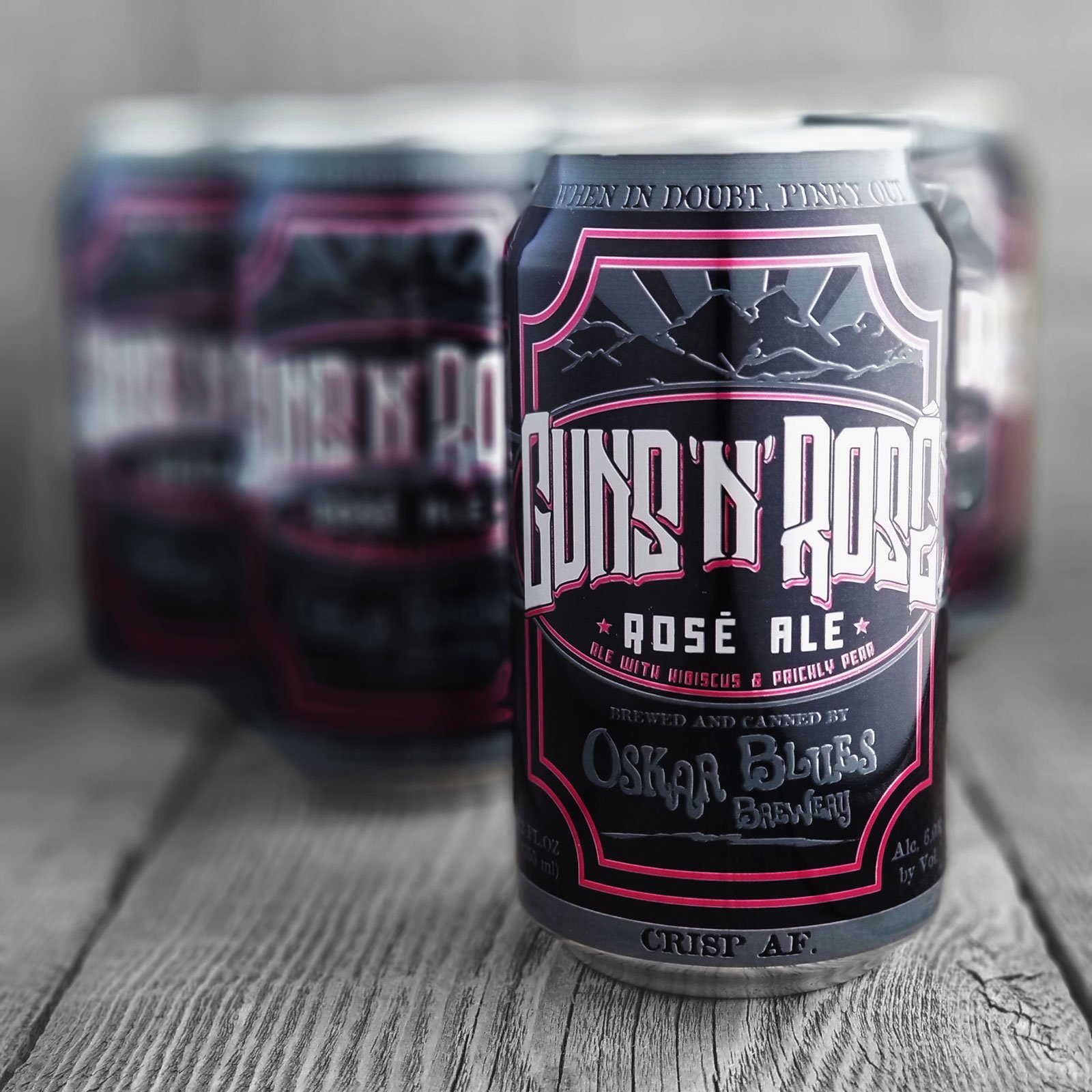All it took was one look at the label and you could tell a lawsuit was coming.
There was just something about Guns ‘N’ Rosé – a rosé-style sour beer that debuted in 2018 from Oskar Blues brewing in nearby Longmont, CO – that felt a little too close to a certain 80s hair band out of LA. Yes, the brewery had filed a trademark application for the name and had been granted branding approval by the Alcohol and Tobacco Tax and Trade Bureau (TTB), but the whole thing just felt like a lawsuit magnet. There had to be an IP complaint coming.
And, of course, that’s exactly what happened.
That December, the band’s business manager called the brewery’s CEO, and eventually sent a cease-and-desist letter. A full lawsuit followed in May 2019 that was eventually settled. Guns ‘N’ Rosé has since been renamed Rosé for Daze.
“GNR has earned widespread recognition by virtue of the band’s remarkable success and thirty year existence,” the band wrote in its initial letter. “GNR owns and has registered the name and trademark Guns N’ Roses in various countries, including in the United States, for use with clothing, musical sound recordings, and musical performances.”
Why on Earth did Oskar Blues ever think it would get away with this? (Oddly enough, the brand has been dancing pretty close to the trademark line a lot lately, previously applying for ownership of the phrase “Queen of Beers” – you may know her husband, the King, he’s brewed in St. Louis – before later pulling its application.) In part, it might be because trademark infringement is becoming a pattern in the craft beer industry.
- Stillwater Artisanal Ales received a cease-and-desist letter in 2016 over a wild ale modeled off a Kanye West album cover, The Life of Pablo.
- Stone Brewing recently sued MolsonCoors over the use of the word “Stone” in the brewery’s Keystone line of beers.
- And the owner of Lagunitas Brewing in California once threatened a lawsuit against Sierra Nevada Brewing for its font choice and prominent placement of IPA on a beer label.
There’s a lot to unpack here, but first I have to mention another Colorado brewery, Left Hand, which got into some hot water when in 2014 it tried to trademark the word “nitro,” after its Milk Stout Nitro became one of its best-selling beers.
It didn’t go over well.
“It was never meant to piss anybody off, but to protect a ton of money and time that we had spent on it,” Left Hand spokesman Chris Lennert said after the application was pulled. “We were trying to protect ourselves from having one of the big guys come out with a package like that. But we said if we are going to get all this flak for it, then we don’t want to do it. So we came back and shifted our focus. We didn’t want to be negative.”
Clearly, so much could have been done better in all of these cases. But it really comes down to common sense, in the beer world and in every industry. Think before you post something or go down the trademark path. Consult your attorneys before making any major moves. And consider the potential risks you might be opening yourself and your business up to.
- Will I get sued by someone if I use this as my company or product name?
- Do I want to have to fight a “cease and desist” effort, or the lawsuit that might come after it?
- How expensive will a total rebrand be after the fact if I can’t use this name or branding?
- Is it worth it? (In most cases, no.)
It doesn’t have to be a complicated or time-consuming process, either. A quick Google search, a business name check at your state’s Secretary of State database, and the USPTO’s Trademark Electronic Search System (TESS) can save a ton of time/money/trouble later on. (Also, if you’re serious about raising investment down the road, it’s always worth checking with the Delaware Secretary of State for potential conflicts too.)
Yes, Guns ‘N’ Rosé is a funny name and here we are still talking about it three years later, but IP owners and their attorneys typically don’t see the humor in this sort of stunt. There’s a lesson in all of this for entrepreneurs: It’s never worth playing fast and loose with IP, either your own or something that belongs to someone else.





